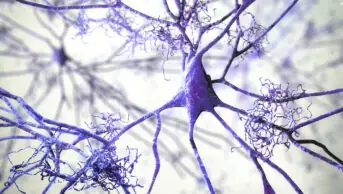
Shutterstock
It has been suggested that low vitamin D levels during pregnancy increase the baby’s risk of multiple sclerosis (MS) in later life, but studies have provided conflicting results.
In research published in Neurology
[1]
(online, 30 November 2016), a team used Danish data to match 521 patients with MS to 972 controls of the same sex and date of birth.
The researchers found an inverse relationship between levels of vitamin D in dried blood spots taken five to seven days after birth and the risk of developing MS later in life — every 25nmol/L increase was associated with a 30% lower likelihood of the disease.
The team concludes that children born with low levels of vitamin D therefore appear to have a higher risk of developing MS but further research is needed to explore if increasing vitamin D levels has a protective effect.
References
[1] Munk Nielsen N, Munger KL, Koch-Henriksen N et al. Neonatal vitamin D status and risk of multiple sclerosis. Neurology 2016. doi: 10.1212/WNL.0000000000003454


